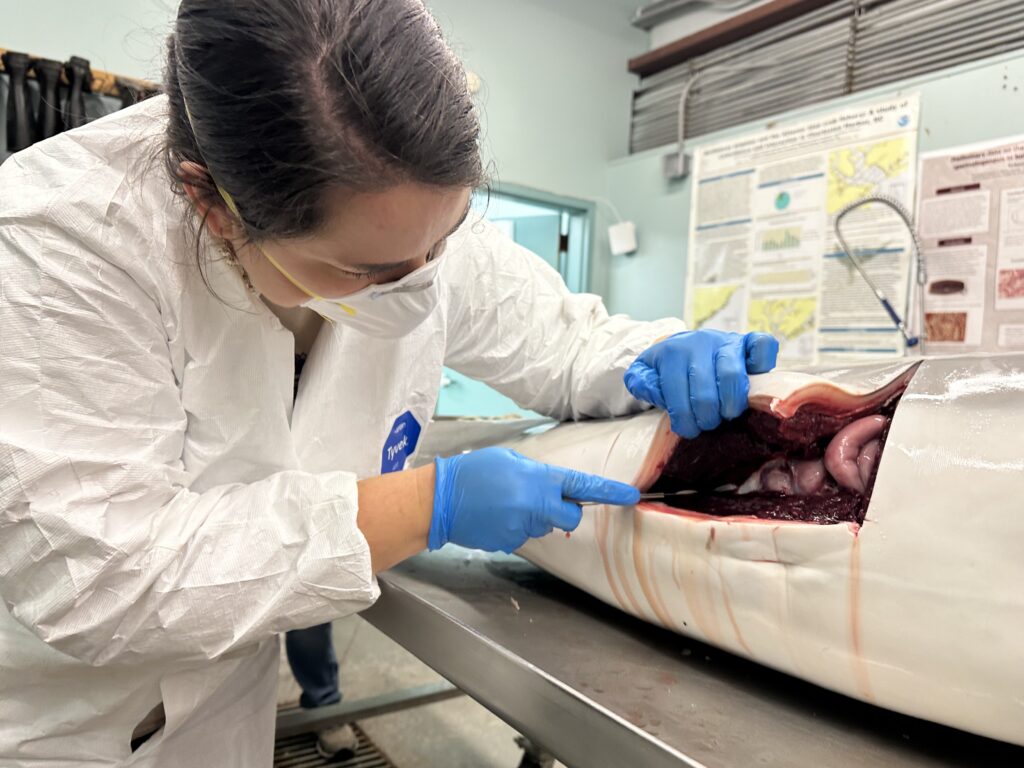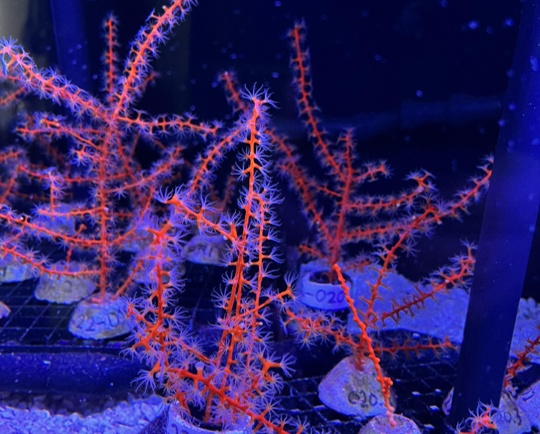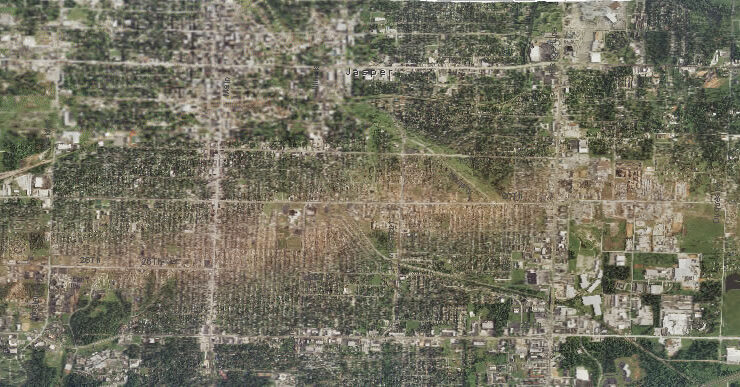
CSS employee owner and Marine Mammal Microplastic Specialist supporting NOAA’s National Centers for Coastal Ocean Science assists the South Carolina Marine Mammal Stranding Network in responding to dead marine mammals when they strand on beaches or estuaries throughout South Carolina. This is work is critical for human and environmental health because it provides invaluable samples which allow scientists to
- better understand ecosystem conditions since marine mammals are important indicators of the health of their environment,
- gain insight to the health of the marine mammal community,
- assume potential impacts for humans living in the coastal zone.
In addition, removing marine mammal carcasses from public spaces helps avoid potential disease transfer to humans.
The Lowcountry Marine Mammal Network (LMMN) is the current NOAA Fisheries permit holder—a permit required by the Marine Mammals Protection and Endangered Species Act for research including collecting samples for biopsies. The organization currently has only one staff member dedicated to these responses. Since responding to stranded, deceased marine mammals is not safe or possible to do alone, CSS staff supporting NCCOS frequently assist with field responses, conducting necropsies (i.e. animal autopsies), and sample collection.


Following sample collection, the CSS Marine Mammal Microplastic Specialist is specifically responsible for the gastrointestinal assessment. Responsibilities for this task include dissecting and analyzing the stomach and entire intestinal tracts of stranded marine mammals. This assessment helps provide information regarding the animal’s recent diet and is one of the final determinants of whether an animal was affected by human interaction, specifically by ingesting microplastics. This data is used by LMMN, NOAA’s National Marine Fisheries Service, and NOAA’s National Centers for Coastal Ocean Science.
See More CSS Insights

Studying Mesophotic Coral Health
Mesophotic coral can live at depths of 500 feet below the ocean surface. Even at this depth, some of the mesophotic corals in the Gulf of Mexico were affected by the Deepwater Horizon oil spill in 2010. Our coral scientists supporting NOAA’s National Centers for Coastal Ocean Science are studying the extent of this impact.…

Providing Data Products for More Effective Consumption
The National Oceanic and Atmospheric Administration’s (NOAA) National Centers for Environmental Information (NCEI) is responsible for providing data, products, and services that help businesses and organizations operate more efficiently and effectively. As such, these data and products need to be available in a publicly accessible and digestible format the audience are able to understand. To…

1000 Samples of Lake Water Collected and Processed
Congrats to our team supporting U.S. Environmental Protection Agency’s Office of Research and Development for completing the processing and initial chemical analyses of 1000 lake water samples! They received lake water samples from across the continental U.S. this past summer and have completed the initial chemical analyses as part of the U.S. EPA 2022 National…
